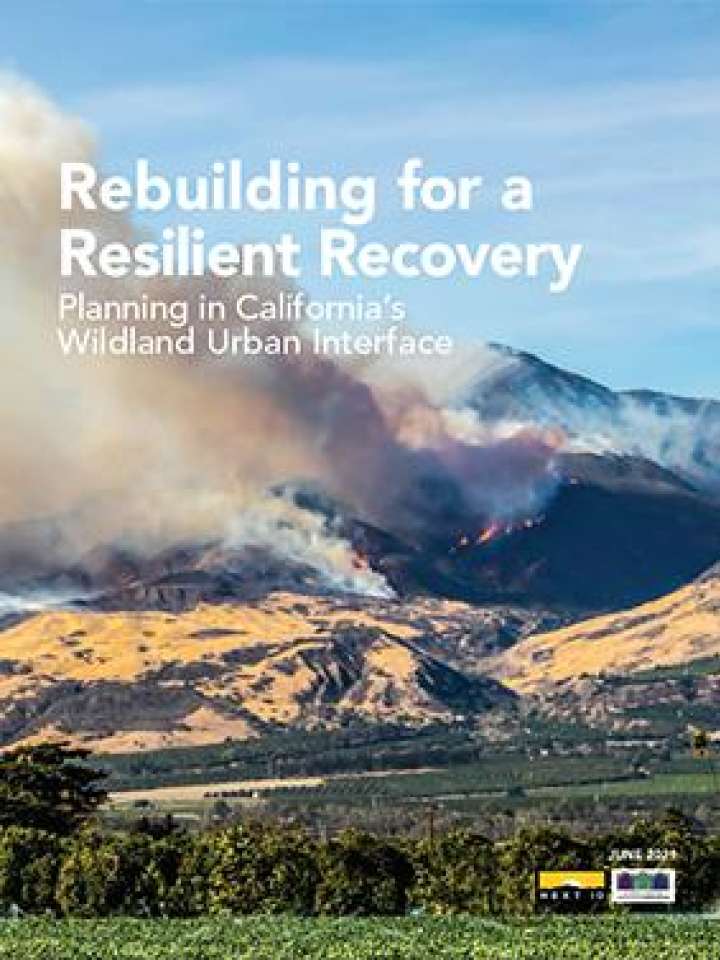Rebuilding for a resilient recovery: Planning in California's wildland urban interface
California must comprehensively reshape how we rebuild after wildfires—or risk an unthinkable surge in costs and major setbacks to the state’s housing supply amidst a record housing crisis. That’s the finding of Rebuilding for a Resilient Recovery: Planning in California's Wildland Urban Interface, released today from researchers at the UC Berkeley Center for Community Innovation and non-partisan, non-profit think tank Next 10.
The researchers studied three communities recently affected by fires—Santa Rosa (Tubbs Fire, 2017), Ventura (Thomas Fire, 2017) and Paradise (Camp Fire, 2018)—and found that state and local land use policies, coupled with the state's housing shortage, are ratcheting up the economic and human cost of wildfire by incentivizing rebuilding in the high risk-wildland urban interface (WUI), instead of redirecting development away from fire-prone areas. This is intensifying untenable safety, economic, and climate risks as the state prepares for another harrowing wildfire season in the midst of record drought.
The report finds that pursuing either the “Managed Retreat” or “Resilience Nodes” pathways can reduce fire risk and household costs for residents, when compared with the “rebuilding as usual” scenario, while also helping to meet housing and climate goals. While the “Managed Retreat” scenario provides the largest safety and climate benefits, it presents new displacement risks for residents. The “Resilience Nodes” scenario offers the most potential for economic growth, with fewer social equity impacts, but also delivers less of a guarantee of lower future fire risks. Additional key findings and policy recommendations can be found on the Key Findings tab.
